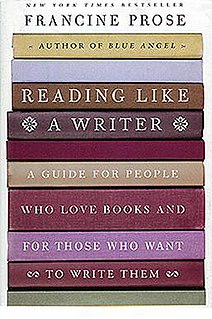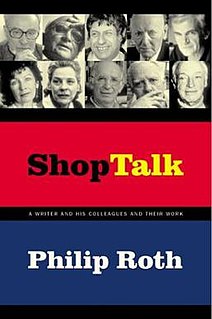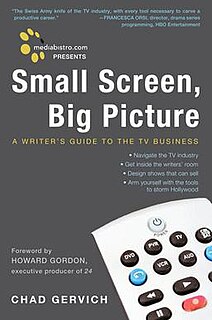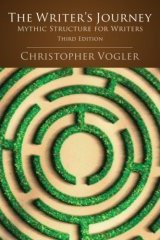 W
WAlan Moore's Writing for Comics is a 48-page paperback book published in 2003 by Avatar Press. The volume reprints a 1985 essay by Alan Moore on how to successfully write comics that originally appeared in the British magazine Fantasy Advertiser in four chapters, running from issue #92, August 1985, to issue #95, February 1986).
 W
WThe Art of Fiction: A Guide for Writers and Readers is a book about fiction writing by the philosopher Ayn Rand, published posthumously. Edited by Tore Boeckmann, it was published by Plume in 2000. The book is based on a 1958 series of lectures about fiction writing which Rand gave to a group of student readers and writers in her living room. A companion book is The Art of Nonfiction.
 W
WThe Company They Keep: C. S. Lewis and J. R. R. Tolkien as Writers in Community (2007) is a non-fiction book written by Diana Pavlac Glyer, an Inklings scholar and English professor at Azusa Pacific University. The Company They Keep challenges the commonly held belief that the Inklings did not influence each other through a detailed and engaging examination of both published and unpublished works, papers, and letters written by J.R.R. Tolkien, C.S. Lewis, Charles Williams, Owen Barfield, Warren Lewis and the lesser-known writers who comprised the Inklings.
 W
WThe Complete Idiot's Guide to Publishing Science Fiction (2001) by Cory Doctorow and Karl Schroeder was published as part of The Complete Idiot's Guide series of non-fiction manuals released by Alpha Books. It was the first non-fiction book by Doctorow, a novelist.
 W
WDanse Macabre is a 1981 non-fiction book by Stephen King, about horror fiction in print, TV, radio, film and comics, and the influence of contemporary societal fears and anxieties on the genre. It was republished on February 23, 2010 with an additional new essay entitled "What's Scary".
 W
WFaces of Fear is a World Fantasy award-winning book where writer, critic and lawyer Douglas E. Winter interviews seventeen contemporary British and American horror writers about their life and art. The writers are V. C. Andrews, Clive Barker, William Peter Blatty, Robert Bloch, Ramsey Campbell, John Coyne, Dennis Etchison, Charles L. Grant, James Herbert, T. E. D. Klein, Stephen King, Michael McDowell, Richard Matheson, David Morrell, Alan Ryan, Whitley Strieber and Peter Straub.
 W
WFrom Where You Dream: The Process of writing fiction is a transcription and condensation of Robert Olen Butler's Masters class on writing. Put together and edited by Janet Burroway, it emphasizes dreamspace or unconscious writing as opposed to thinking or analytical writing in order to create a good or true work of art. It purports that yearning, or motivation, is the key point of craft missed by inexperienced writers.
 W
WIn Search of a Character: Two African Journals is a slim volume, part travel book, part novelist’s journal, written by English author Graham Greene and first published in 1961. Greene set two of his novels in Africa; A Burnt-Out Case, set in the Belgian Congo, and The Heart of the Matter, set in Sierra Leone. This book contains the journals, not originally intended for publication, that Greene kept on journeys he made for research purposes before writing those two novels.
 W
WJournal of a Novel: The East of Eden Letters is a series of letters written by John Steinbeck to his friend and editor Pascal Covici, in parallel with the first draft of his longest novel, East of Eden. The letters were written between January, 29- October 31, 1951. They were not meant for publication, but an edited version was first published by Viking the year after the author's death in 1968. Steinbeck's letters were mostly written on the left hand pages of a notebook where the right hand pages had the text of East of Eden (novel).
 W
WLee Gutkind is an American writer, speaker, and literary innovator, founder of the literary magazine Creative Nonfiction, the first and the largest literary journal to publish narrative/creative nonfiction exclusively. Disparagingly spotlighted in Vanity Fair Magazine in 1997 as "the Godfather behind creative nonfiction", Gutkind has been its most active advocate and practitioner both as editor and writer.
 W
WThe Novel of the Future is a non-fiction book by Anaïs Nin, published in 1968. In it she explores the nature of the creative process in relation to novel-writing, including concepts such as defamiliarization.
 W
WOf Worlds Beyond is a collection of essays about the techniques of writing science fiction, edited by Lloyd Arthur Eshbach. It was first published in 1947 by Fantasy Press in an edition of 1,262 copies. It has been reprinted by Advent in 1964 and by Dobson in 1965.
 W
WOn Writing: A Memoir of the Craft is a memoir by American author Stephen King that describes his experiences as a writer and his advice for aspiring writers. Originally published in 2000 by Charles Scribner's Sons, On Writing is King's first book after he was involved in a car accident a year earlier. In 2010, Scribner republished the memoir as a 10th anniversary edition, which also featured an updated reading list from King.
 W
WAristotle's Poetics is the earliest surviving work of dramatic theory and first extant philosophical treatise to focus on literary theory. In this text Aristotle offers an account of ποιητικῆς, which refers to poetry or more literally "the poetic art," deriving from the term for "poet; author; maker," ποιητής. Aristotle divides the art of poetry into verse drama, lyric poetry, and epic. The genres all share the function of mimesis, or imitation of life, but differ in three ways that Aristotle describes:Differences in music rhythm, harmony, meter and melody. Difference of goodness in the characters. Difference in how the narrative is presented: telling a story or acting it out.
 W
WPublic Relations is a sociology book written by American pioneer in the field of public relations and propaganda, Edward Bernays, and first published in 1945.
 W
WReading Like a Writer is a writing guide by American writer Francine Prose, published in 2006.
 W
WReading Writing is a 1980 book by the French writer Julien Gracq. It consists on notes and fragments on the relation between reading and writing. An English translation by Jeanine Herman was published in 2006.
 W
WThe Right to Write: An Invitation and Initiation into the Writing Life, by Julia Cameron is a nonfiction book written in first-person point of view about the creative process. The book contains the author's own experiences of writing and lessons learned, also exercises for the reader.
 W
WThe Romantic Manifesto: A Philosophy of Literature is a collection of essays regarding the nature of art by the philosopher Ayn Rand. It was first published in 1969, with a second, revised edition published in 1975.
 W
WSecret Windows: Essays and Fiction on the Craft of Writing is a collection of short stories, essays, speeches, and book excerpts by Stephen King, published in 2000. It was marketed by Book-of-the-Month Club as a companion to King's On Writing. Although its title is derived from a King novella, it is not otherwise related to that novella or the film adaptation, Secret Window.
 W
WShop Talk: A Writer and His Colleagues and Their Work is a collection of previously published interviews with important 20th-century writers by novelist Philip Roth. Among the writers interviewed are Primo Levi, Aharon Appelfeld, Ivan Klima, Isaac Bashevis Singer, Milan Kundera, and Edna O'Brien. In addition, the book contains a discussion with Mary McCarthy about Roth's novel The Counterlife and a New Yorker essay on Saul Bellow. Roth's trip to Israel to interview Appelfeld inspired his novel Operation Shylock.
 W
WSister Bernadette's Barking Dog: The Quirky History and Lost Art of Diagramming Sentences is a 2006 book by author Kitty Burns Florey about the history and art of sentence diagramming. Florey learned to diagram sentences as a Catholic school student at St. John the Baptist Academy in Syracuse, New York. Diagramming sentences is useful, Florey says, because it teaches us to "focus on the structures and patterns of language, and this can help us appreciate it as more than just a vehicle for expressing minimal ideas". Florey said in a 2012 essay "Taming Sentences":When we unscrew a sentence, figure out what makes it tick and reassemble it, we interact with our old familiar language differently, more deeply, responding to the way its individual components fit together. Once we understand how sentences work, it’s harder to write an incorrect one.
 W
WSmall Screen, Big Picture: A Writer's Guide to the TV Business is a nonfiction book about the entertainment business written by Chad Gervich. It covers the process of entering the TV writing profession and earning a living as a TV writer. It was published November 25, 2008, by Three Rivers Press, and is currently published by Penguin Random House.
 W
WSometimes the Magic Works: Lessons from a Writing Life is a book by Terry Brooks. First published in 2003, it seeks to give advice to aspiring writers, often telling some of the stories behind Brooks' own literature as an example.
 W
WSteering the Craft: Exercises and Discussions on Story Writing for the Lone Mariner and the Mutinous Crew is a 1998 nonfiction book by Ursula K. Le Guin. Developed from a writers' workshop led by Le Guin, the book contains self-guided exercises and discussions focused on the craft of narrative prose.
The Tree is an autobiographical book by John Fowles.
 W
WWrite Away is a book written by Elizabeth George on writing.
 W
WThe Writer's Journey: Mythic Structure For Writers is a popular screenwriting textbook by writer Christopher Vogler, focusing on the theory that most stories can be boiled down to a series of narrative structures and character archetypes, described through mythological allegory. Vogler based this work upon the writings of mythologist Joseph Campbell, particularly The Hero with a Thousand Faces, and holds that all successful films innately adhere to its principles. The book was very well received upon its release, and is often featured in recommended reading lists for student screenwriters.
 W
WA Writer's People: Ways of Looking and Feeling is a non-fiction book by V. S. Naipaul, first published in 2007, in which Naipaul discusses how the work of other writers has affected his own writing. The book attracted criticism in British literary circles for its uncharitable treatment of several notable authors, and in particular of Anthony Powell's novel sequence A Dance to the Music of Time, especially since Powell was an old friend of Naipaul's.
 W
WWriting War: Fiction, Gender, & Memory is a 1991 text on women authors, war stories, and literary criticism by American professor Lynne Hanley.